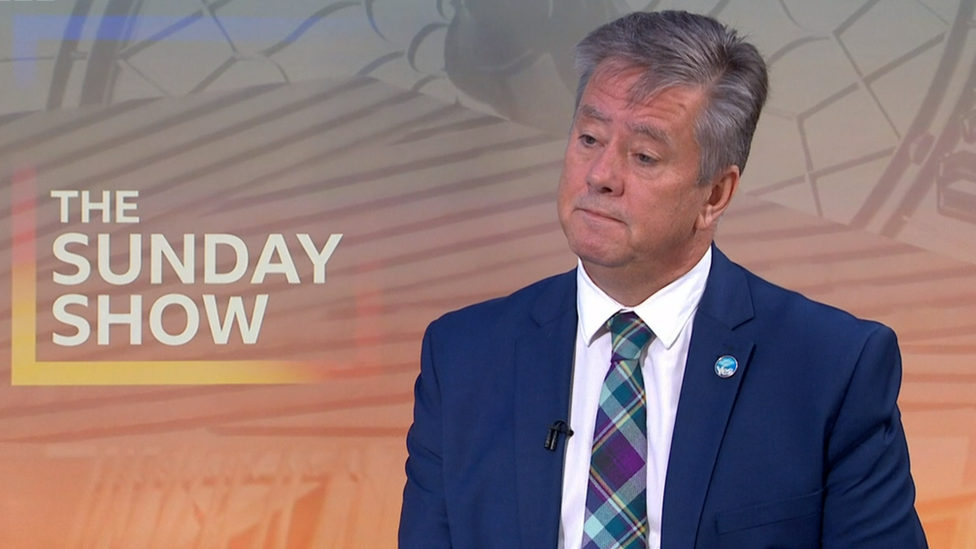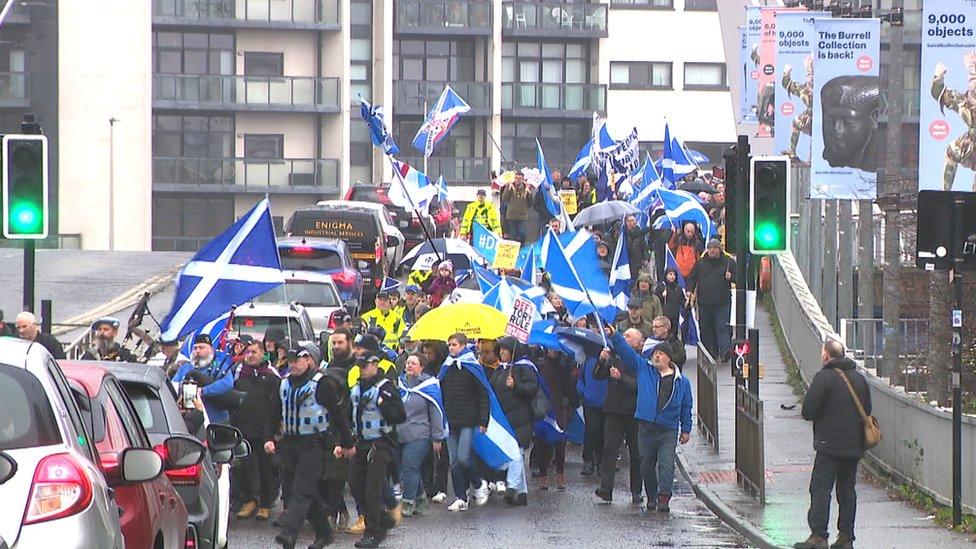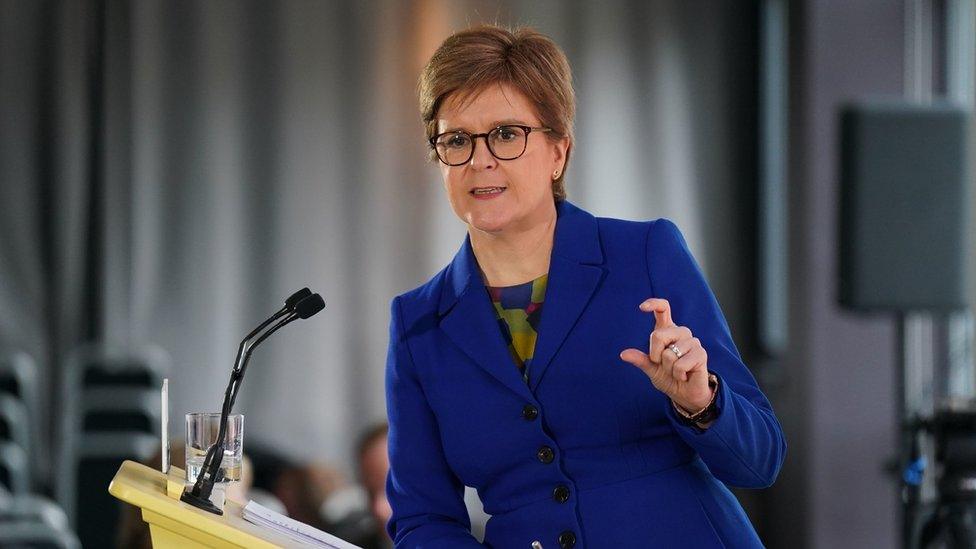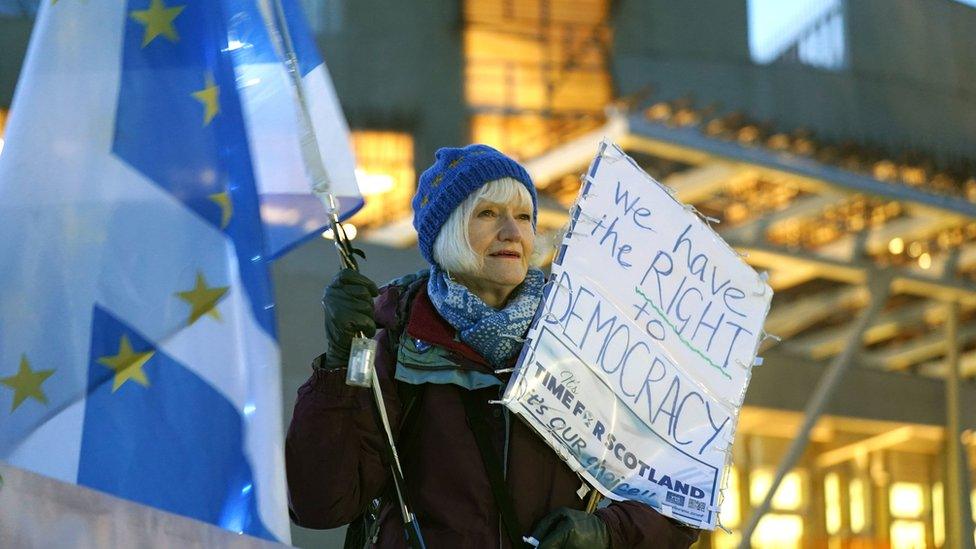UK government scared of indyref, says SNP deputy leader
- Published

The SNP's deputy leader Keith Brown said the Yes movement would hit "new heights" following the Supreme Court ruling
The UK government is "scared" of allowing a Scottish independence referendum because it knows it will lose, the SNP's deputy leader has said.
Keith Brown made the claim after the Supreme Court ruled on Wednesday that a vote could not be held without consent from Westminster.
Nicola Sturgeon has said the SNP will now use the next general election as a de facto independence referendum.
The Conservatives and Labour have rejected that idea.
They argue that general elections are fought on a range of issues and not just the constitution.
Scottish Conservative Party chairman Craig Hoy has also accused Ms Sturgeon of "behaving more like an ultra-nationalist than the first minister" by describing the independence cause as a fight for democracy.
Speaking to BBC Scotland's The Sunday Show, Keith Brown said the Yes movement would hit "new heights" following the Supreme Court ruling.
Mr Brown said: "I think they know they're going to lose this, that's why they are doing everything they can to twist democracy, to refuse the opportunity for the people of Scotland, because they know they're going to lose."
'Proper route'
He also talked down dissolving Holyrood and using the subsequent election as a de facto referendum, which had been suggested by SNP MP Angus MacNeil.
To force a Holyrood election, two-thirds of MSPs would have to vote in favour or the post of first minister would have to be vacant for 28 days.
Mr Brown added: "We do want to have a referendum next year, and we could do that still if the UK government just agreed to the proper route they've agreed in the past.
"That's the reasonable way to do it, that's the democratic way to do it."
First Minister Ms Sturgeon has said she is willing to speak to Prime Minister Rishi Sunak about the possibility of a Section 30 order which would grant Holyrood the necessary powers to stage a vote.
The SNP won 45% of the votes in Scotland at the last general election in 2019 while winning 48 of the 59 seats.
Recent opinion polls have suggested that the country is essentially split down the middle on the independence question, but with a very narrow majority in favour of staying in the UK.


Following the Supreme Court's verdict, the SNP are keen to stress that the questions should be for the UK government - about how exactly ministers in London propose the constitutional issue be settled.
But they are facing plenty themselves about their strategy going forward, given Nicola Sturgeon had already mooted a contingency plan for a "de facto referendum".
The first minister is keen to capitalise on the court verdict as a political moment, but equally has pushed decisions on key details into next year.
That's because her party needs to strike a balance between securing the necessary process, and the larger principle of winning voters over to independence.
Any wildly radical action might be a turn-off to the undecided or unconvinced voters that they really need to cement a majority.
That's why any talk of collapsing the government at Holyrood and forcing a snap Scottish election is not being seriously entertained.
Any plan needs to look and sound credible if it is to have any hope of actually delivering independence. Ms Sturgeon will be thinking very carefully about the detail of her next move.

Related topics
- Published26 November 2022

- Published23 November 2022

- Published23 November 2022
